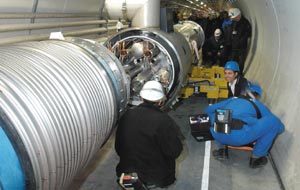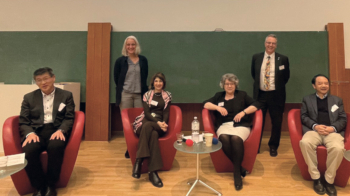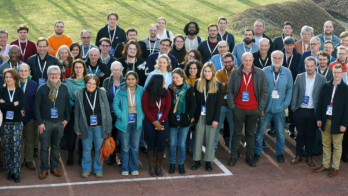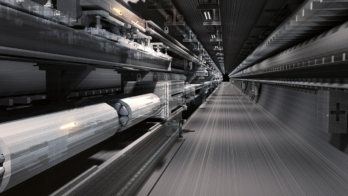
CERN’s director-general Robert Aymar presented a seven-point scientific strategy for the organization at the 128th session of the CERN Council on 18 June. Completion of the Large Hadron Collider (LHC) project, with start-up on schedule for 2007, heads the list. This is followed by the consolidation of existing infrastructure at CERN to guarantee reliable operation of the LHC. The third priority is an examination of a possible future non-LHC experimental programme.
Fourth on the list is a role for CERN in the growing coordination of research in Europe. Aymar cited as examples the Coordination of Accelerator Research in Europe (CARE) project, which could contribute to an LHC upgrade by around 2012, and the EUROTEV project through which CERN will participate in generic R&D issues related to a possible future linear collider. Both of these projects are partly financed by the European Union.
The fifth priority is the construction, starting in 2006, of a linear accelerator injector at CERN to provide more intense beams for the LHC, followed by an intensified R&D effort towards a compact linear collider, or CLIC. This novel accelerator technology under development at CERN could open the way to much higher energies than are available today. Aymar is appealing to laboratories around the world to join the project, and has so far received 18 expressions of interest.
The seventh and final point in the new strategic plan is to prepare a comprehensive review of CERN’s long-term activity, to be available by 2010 when results from the LHC will have given a first description of the landscape of particle physics for years to come.
The current status of the LHC project was the subject of a report at the same session by Lyn Evans, the LHC project leader. The programme for installation of the LHC is currently being reviewed, following a delay in installing the distribution line for the cryogenic liquids that will cool the machine to 1.9 K. Difficulties have been solved, and the contractor has delivered a new schedule that foresees completion of the distribution line by February 2006, with two octants fully installed by the end of 2004. This compresses the overall schedule, which now requires the installation of two octants at a time to make up for the delay. However, Evans strongly reaffirmed the intention to start up the LHC in 2007, with first collisions in the summer. He also drew attention to the global collaboration that is making the LHC a reality. Most of the components from non-member states are now complete.





